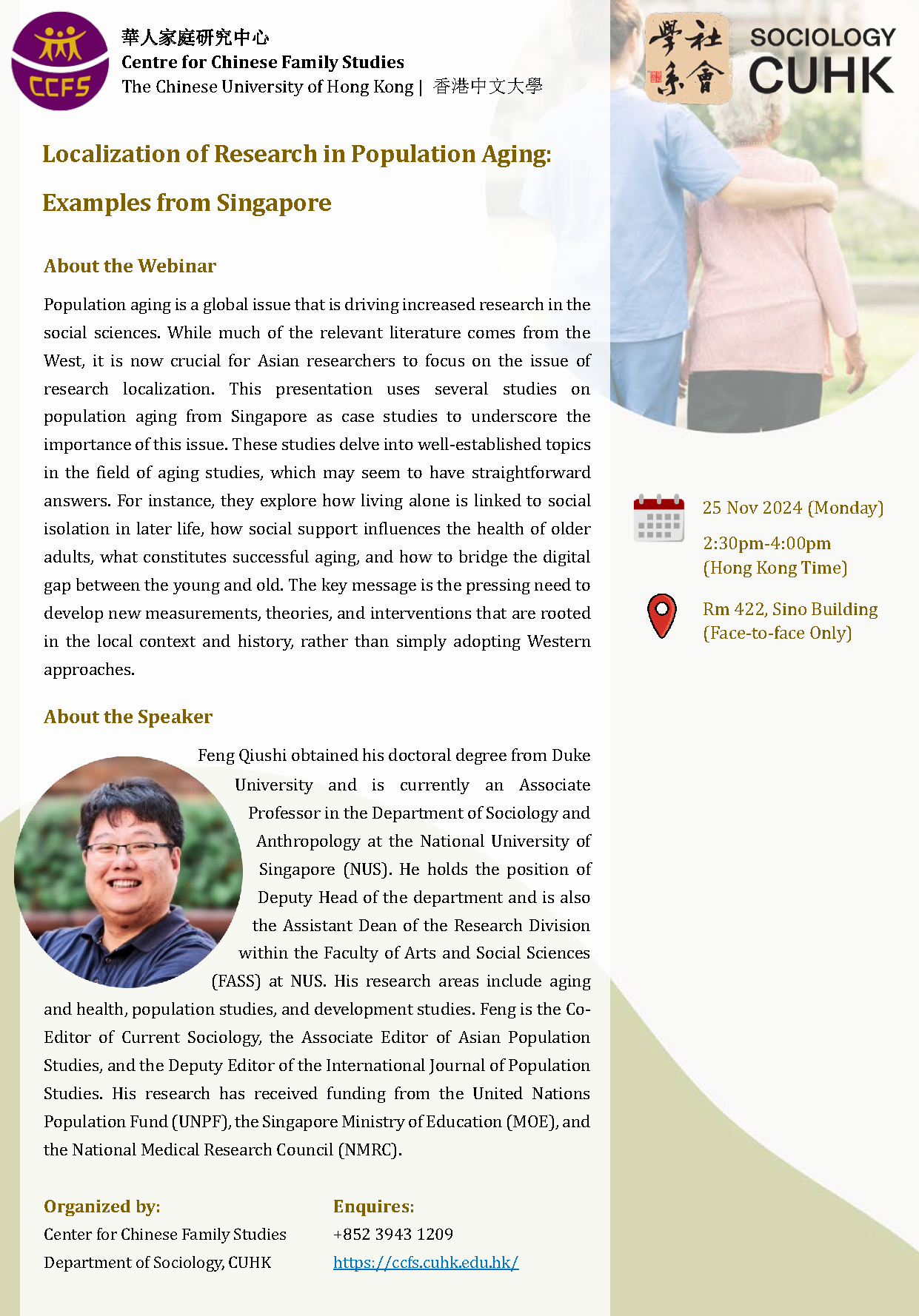Speaker: Prof. Qiushi Feng (Associate Professor, Department of Sociology and Anthropology, National University of Singapore)
Time: 2:30pm–4:00pm, 25 Nov 2024 (Monday, HK Time)
Venue: Rm 422, Sino Building, Chung Chi College, CUHK (Face-to-face only)
Registration: No registration is required
About the Webinar:
Population aging is a global issue that is driving increased research in the social sciences. While much of the relevant literature comes from the West, it is now crucial for Asian researchers to focus on the issue of research localization. This presentation uses several studies on population aging from Singapore as case studies to underscore the importance of this issue. These studies delve into well-established topics in the field of aging studies, which may seem to have straightforward answers. For instance, they explore how living alone is linked to social isolation in later life, how social support influences the health of older adults, what constitutes successful aging, and how to bridge the digital gap between the young and old. The key message is the pressing need to develop new measurements, theories, and interventions that are rooted in the local context and history, rather than simply adopting Western approaches.
About the Speaker:
Feng Qiushi obtained his doctoral degree from Duke University and is currently an Associate Professor in the Department of Sociology and Anthropology at the National University of Singapore (NUS). He holds the position of Deputy Head of the department and is also the Assistant Dean of the Research Division within the Faculty of Arts and Social Sciences (FASS) at NUS. His research areas include aging and health, population studies, and development studies. Feng is the Co-Editor of Current Sociology, the Associate Editor of Asian Population Studies, and the Deputy Editor of the International Journal of Population Studies. His research has received funding from the United Nations Population Fund (UNPF), the Singapore Ministry of Education (MOE), and the National Medical Research Council (NMRC).

